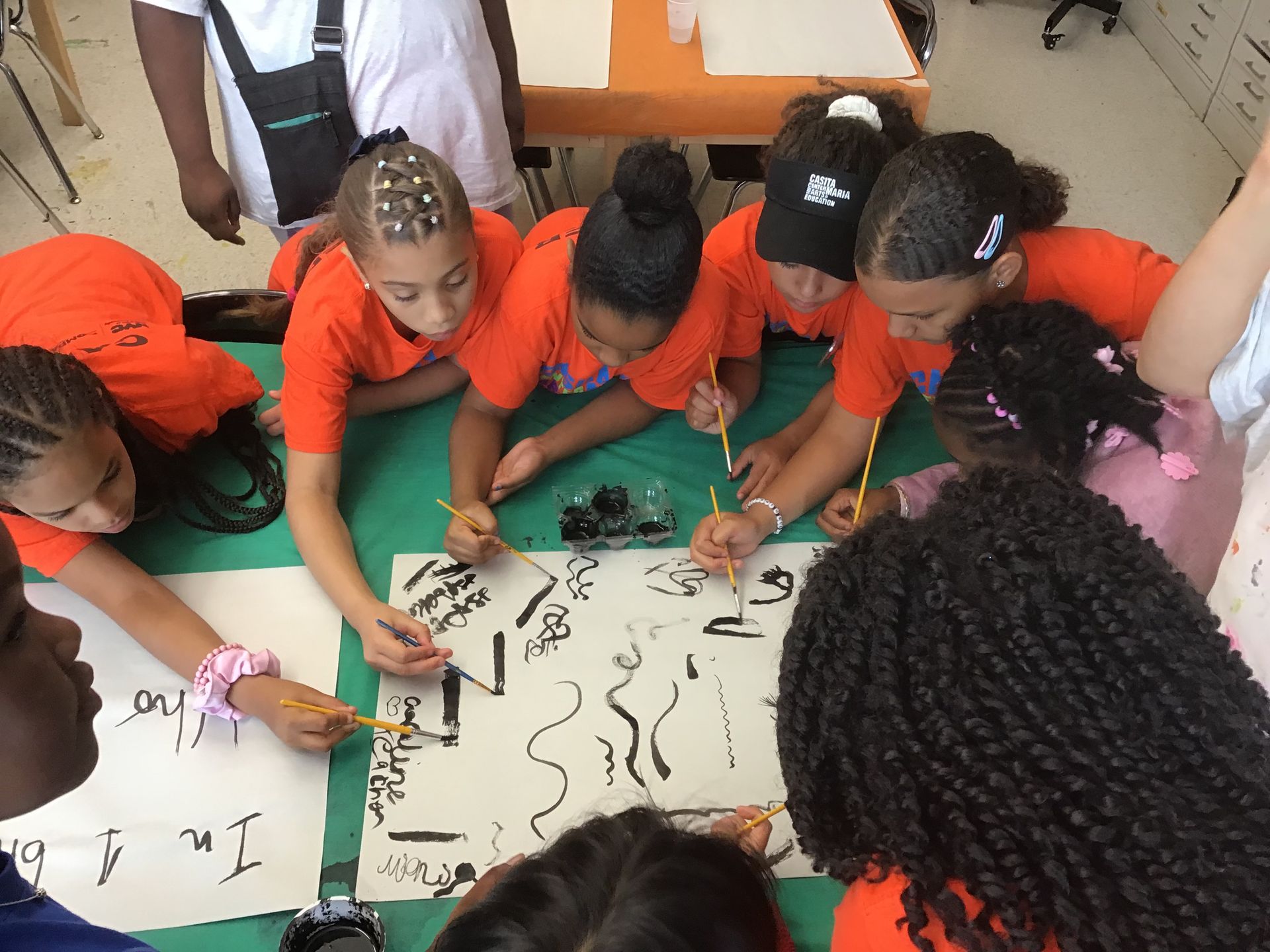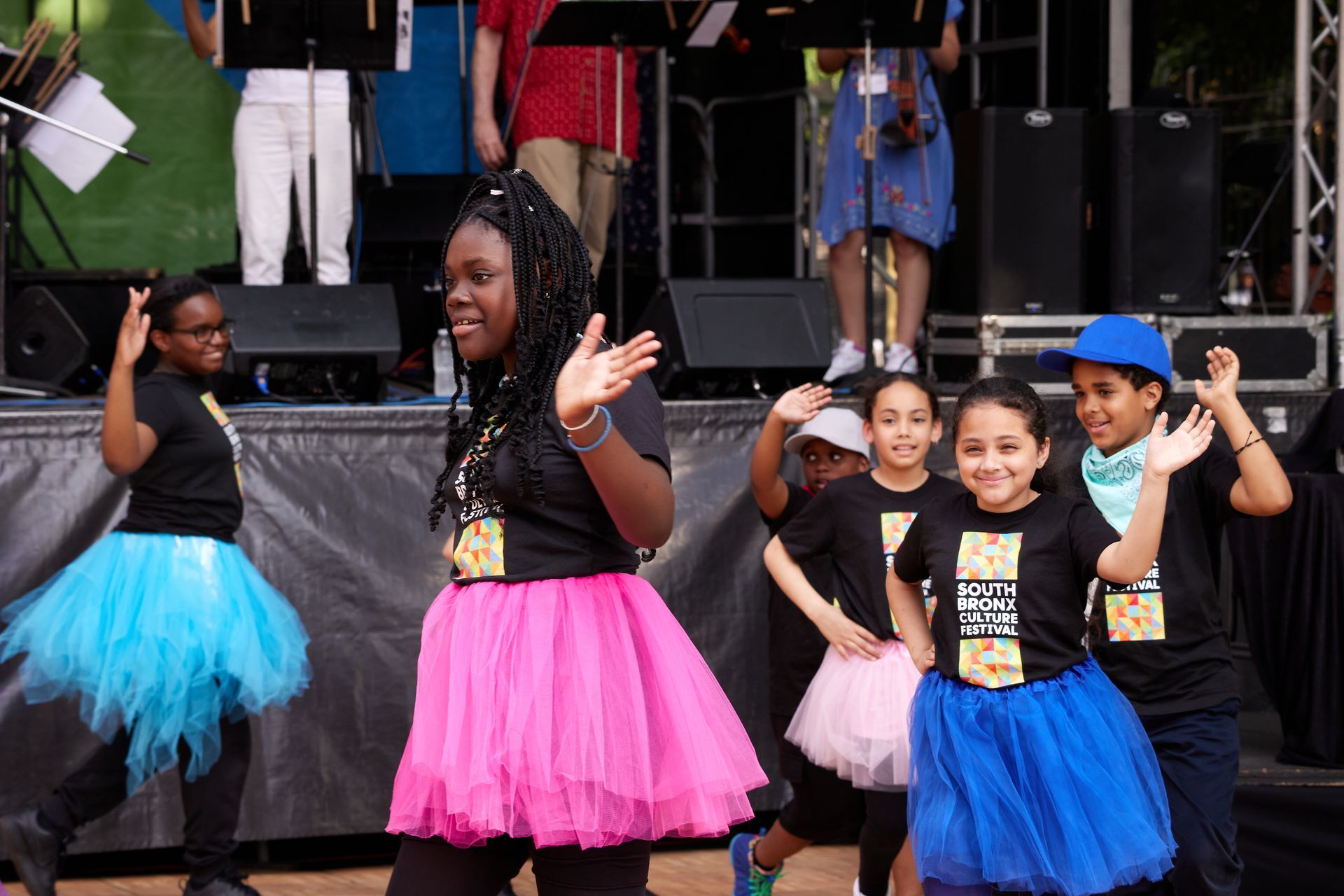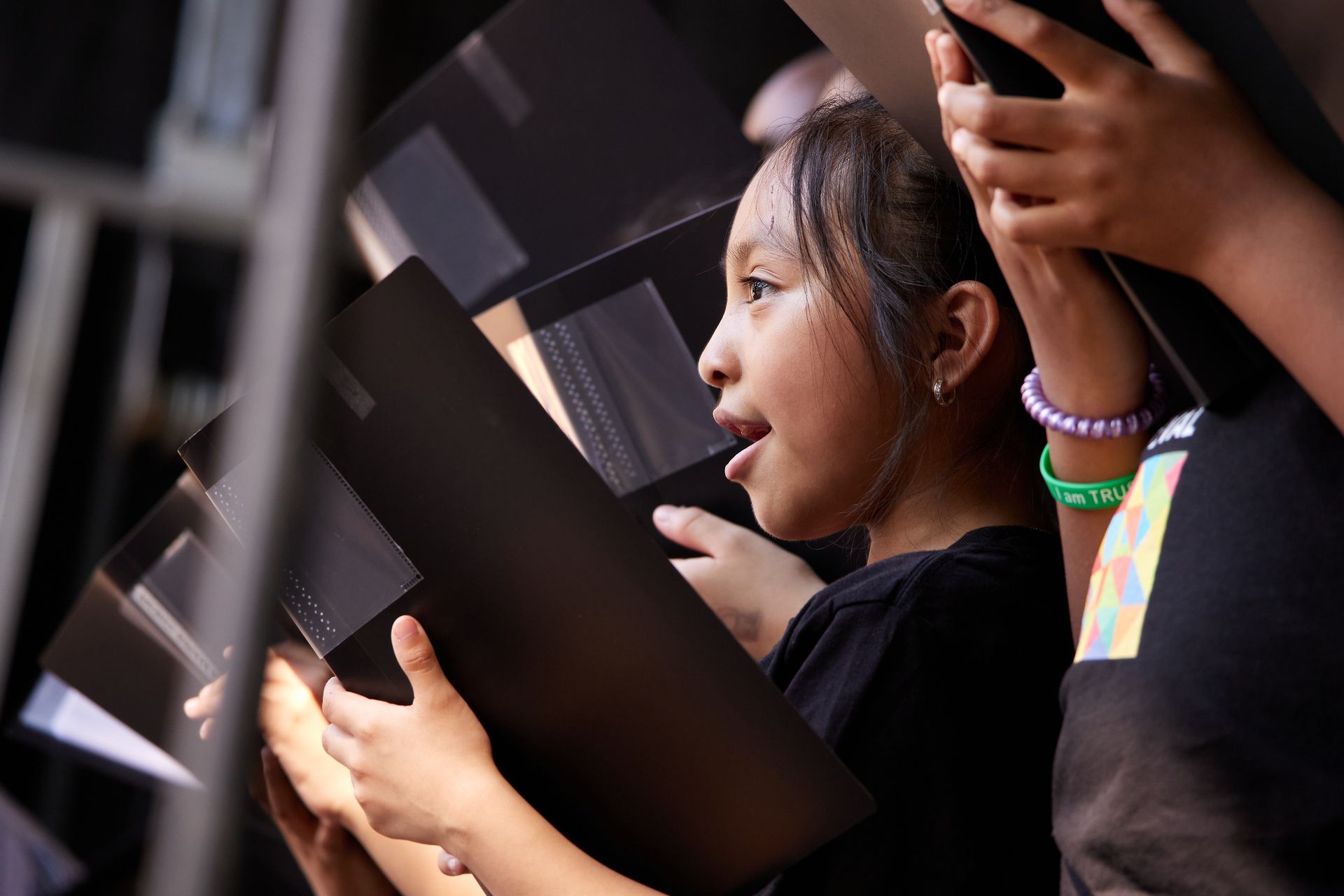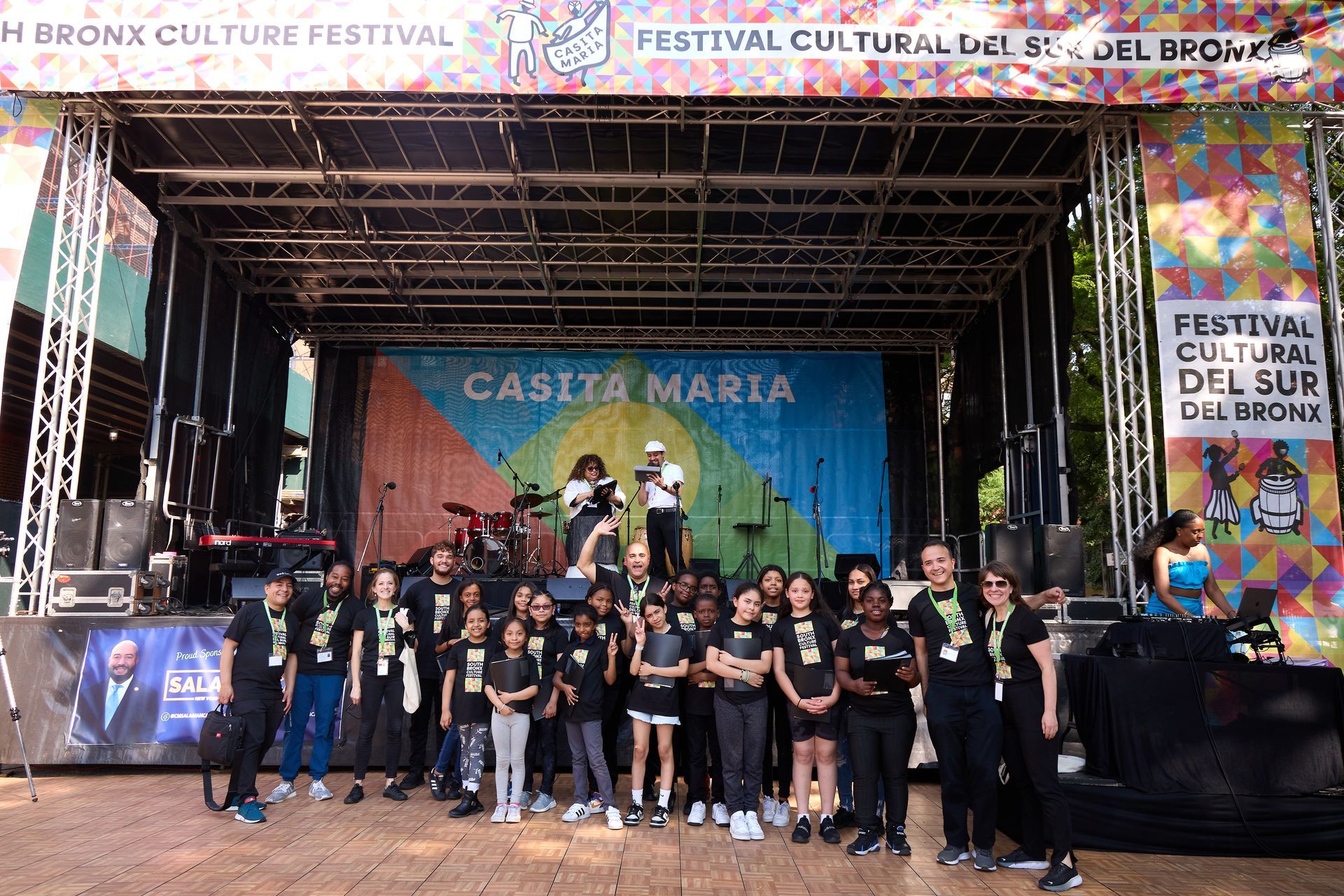Our Framework
Creative Youth Development (CYD) and Social Emotional Learning (SEL) are core components of Casita Maria's youth programming, influencing all levels of our organization so that children can thrive in a safe learning environment
Characteristics of Creative Youth Development
Holistic Approach
Asset-Based
Youth-Driven
Within the CYD framework, young people are regarded agents of their own development, they may take on leadership roles, help choose what activities to participate in, and influence program design. This helps youths set goals, develop a sense of responsibility, ownership, independence, decision-making, and initiative. Programs that integrate this characteristic provide youth with a voice, and an opportunity to partner with adults, which encourage positive relationships.
Casita Maria's Core CYD Principles
1. High Expectations: Artists and creatives are valued, and all staff maintain a culture of high expectations.
2. Welcoming Program Space: Arts and STEAM (Science, Technology, Engineering, Arts, and Math) programs happen in inspiring and welcoming spaces and affirm the value of creativity and creators.
3. Safe Space: Casita Maria provides a physical and emotionally safe place for youth and community.
4. Positive Staff and Peer Relationships: Positive relationships with staff and peers create a sense of belonging and acceptance.
5. Network of Support: Stakeholders are engaged strategically to create a supportive network for both participants and the programs.
6. Meaningful Youth Leadership: Program participants help shape programs and take on meaningful leadership roles.
7. Practical Experience: Programs are hands-on and build skills using current technology and equipment.
8.
Culminating Events: Programs lead to high-quality public performances and events.
Social Emotional Learning
Social Emotional Learning competencies are skills, knowledge, beliefs, and attitudes that allow individuals to manage emotions, feel empathy, develop positive relationships, and make responsible decisions (The Pennsylvania State University, 2017; CASEL, 2020). The five domains of SEL include the following:
a) Self-awareness, recognizing one’s emotions and thoughts and how they influence behavior
b) Self-management, regulating thoughts, emotions, and behaviors
c) Social awareness, taking perspective of others – from different cultural backgrounds, ability to empathize, and recognize social and ethical norms
d) Relationship skills, effectively forming and maintaining meaningful and positive relationships
e) Responsible decision-making, make plans for the future, follow a moral or ethical code, and contribute to the well-being of others (Oberle, Domitrovich, Meyers, & Weissberg, 2016)
SEL is important, not only for youths, but also for their parents/caregivers as well as staff. SEL can help youths find their voice, support the well-being of the staff, develop relationships with families and the community, and contribute to more equitable environments (CASEL, 2020).


